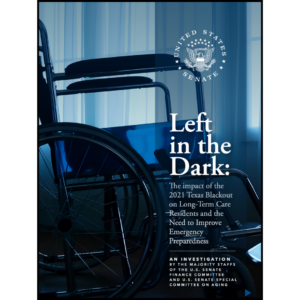Ebola and its impact on seniors
Healthy awareness in cases of possible pandemics is not only practical, it’s smart. While reports from the Centers for Disease Control and Prevention (CDC) and various public health officials indicate that the possibility of mass exposure to the Ebola virus is extremely small, the CDC has issued infection prevention recommendations.
While the recommendations are primarily for healthcare personnel and others indirectly involved with patient care (housekeeping, maintenance, security and others) in hospitals, the guidance also can apply to other healthcare settings, such as skilled nursing and assisted living communities. The CDC also advises that administrators should develop a policy to manage and monitor personnel exposed to the virus as well as the implementation of nonpunitive sick leave policies. Visit the CDC Ebola website to see the complete list of recommendations, along with infection prevention procedures.
Long-term care communities can be proactive in their responses to this health scare. Communicate with residents and staff to reassure them, and encourage them to report any symptoms they might experience.
“Prevention is everything. People shouldn’t react out of fear to Ebola; they should react out of proactive strength,” JoAnne Carlin, vice president of clinical risk services at Willis Senior Living Practice Group, said in an article. Carlin stresses the importance of taking precautions to prevent infections from starting, including sanitizing high-touch surfaces and resident equipment, such as walkers.
As with any heavily reported news event, “snake oil” scammers have found a way to victimize older Americans and others during the Ebola scare. Unsubstantiated promises of health supplements to prevent or cure Ebola have been reported to the Federal Trade Commission. To date, the federal Food and Drug Administration (FDA) has not approved any vaccines or drugs that prevent or cure Ebola, although some are under development. Natural Solutions Foundation of Newton, N.J., recently received a warning letter from the FDA to stop marketing its products as an Ebola cure.
As the news and reaction to the risks of Ebola to the American population continue, a recent article published in Forbes puts the Ebola threat in perspective. Older Americans have more to worry about from the flu than the Ebola virus. Data show that more than 90 percent of flu-related deaths in a year (average 25,000), occur in people 65 years of age and older.
Related article: Battling Ebola and other threats, wherever we are

Sandra Hoban was on I Advance Senior Care / Long-Term Living’s editorial staff for 17 years. She is one of the country’s longest-serving senior care journalists. Before joining Long-Term Living, she was a member of the promotions department at Advanstar Communications. In addition to her editorial experience, Sandi has served past roles in print and broadcast advertising as a traffic and talent coordinator.
Related Articles
Topics: Clinical , Disaster Preparedness , Leadership , Risk Management











